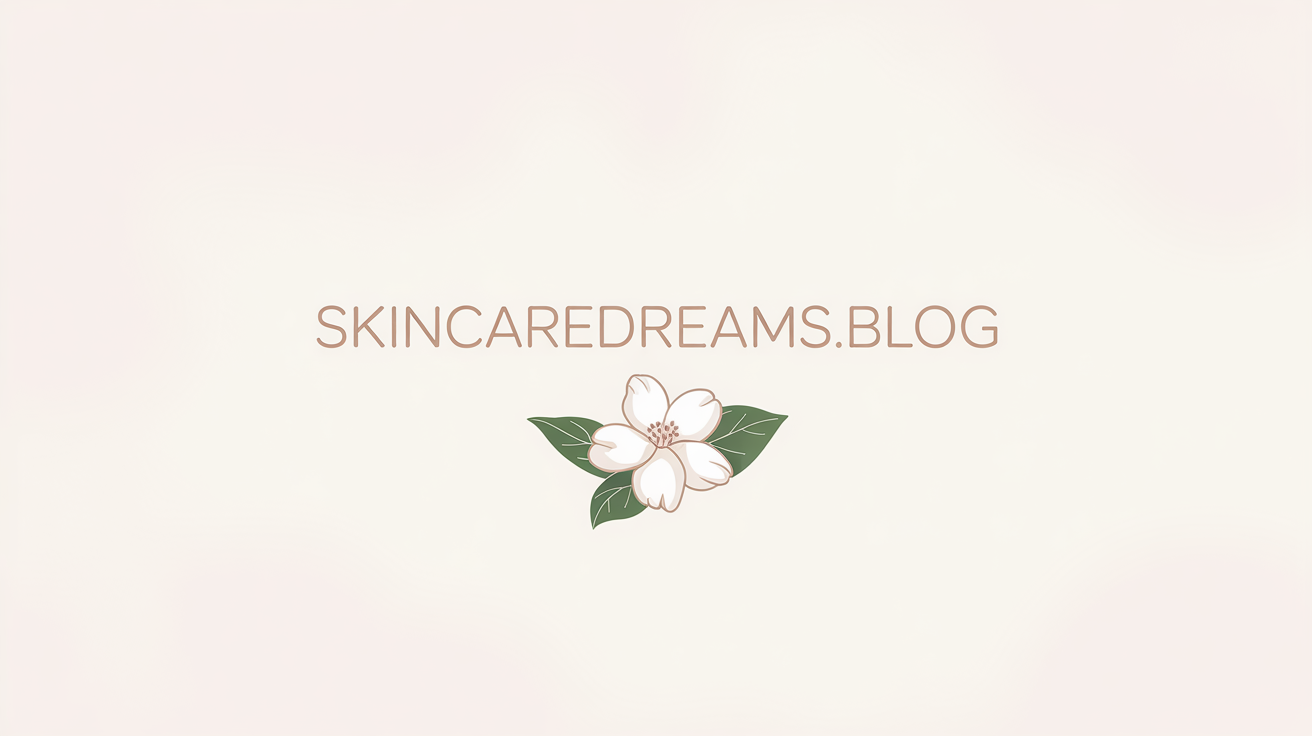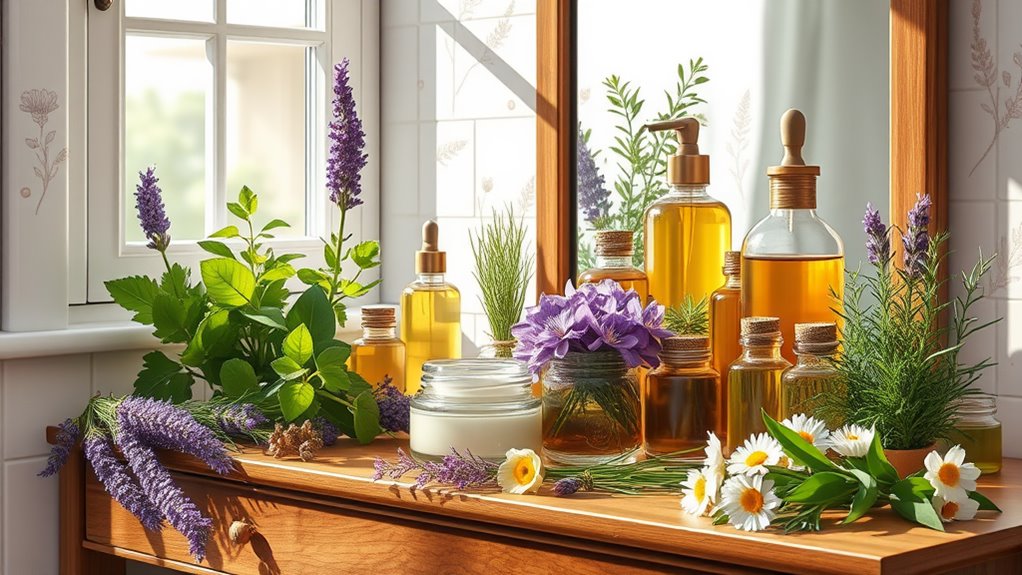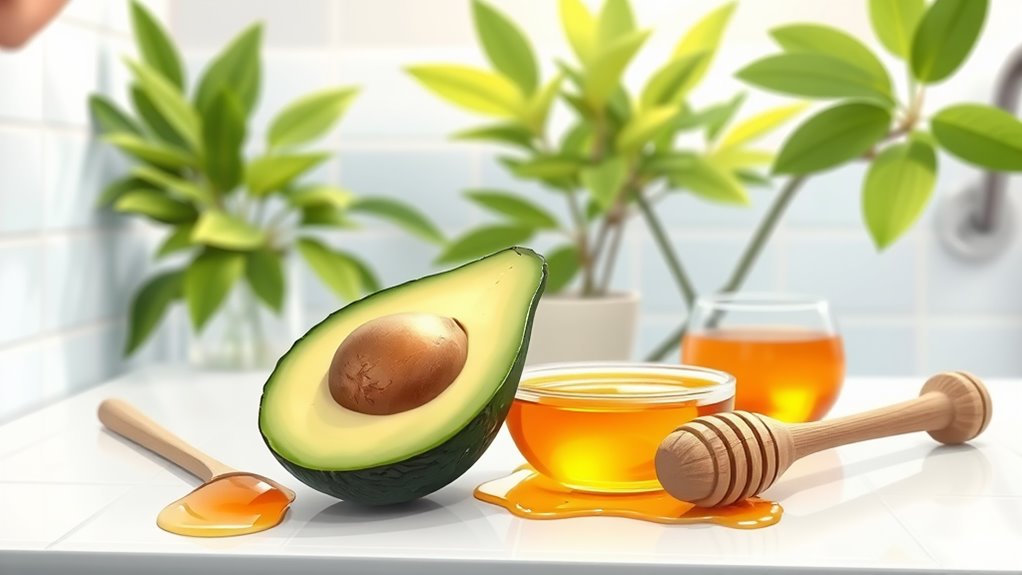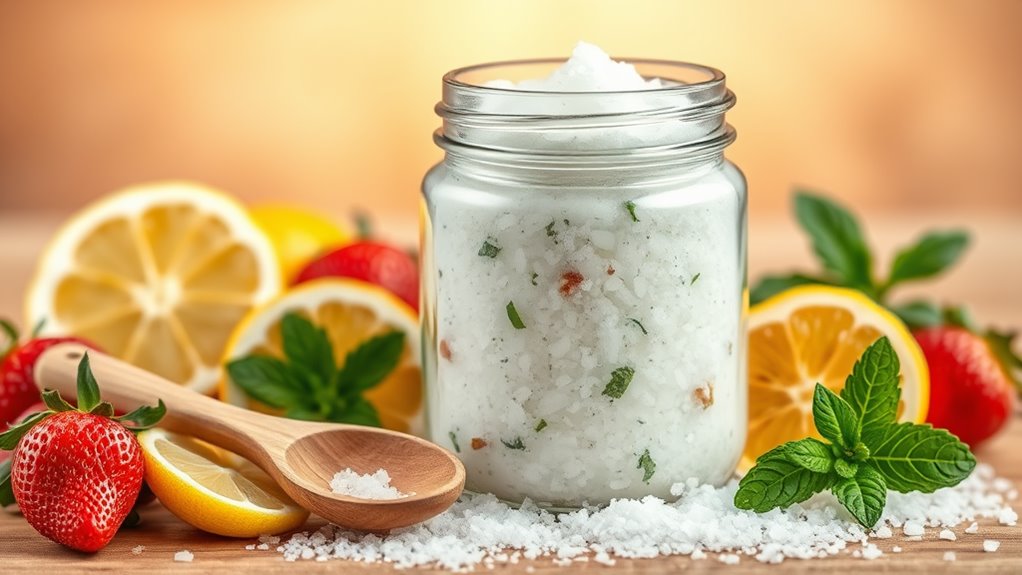Herbal Skincare Remedies Passed Down for Generations
Herbal skincare remedies have long been a source of wisdom, passed down through generations. You might recall a family member sharing a soothing calendula oil recipe or an aloe vera gel for burns. These traditions not only address skin issues but also weave a tapestry of shared memories and trust in nature. Curious about which herbs have stood the test of time and how they can benefit your skincare routine?
Key Takeaways
- Ancient cultures used herbs like calendula and aloe vera for skincare, passing down their benefits through generations.
- Family traditions often include using herbal remedies, such as chamomile tea for calming effects during gatherings.
- Common herbs like lavender and witch hazel have been utilized for their soothing and healing properties in skincare.
- Preparing herbal skincare products involves infusing fresh herbs into oils, creating salves, and other formulations shared among family members.
- Consistent application of herbal remedies, rooted in ancestral knowledge, enhances their effectiveness for various skin concerns.
The Historical Roots of Herbal Skincare
Since ancient times, people have turned to nature for skincare solutions, recognizing the healing properties of herbs long before modern science validated their benefits.
You’ll find that the roots of herbal treatments run deep in various cultures, where traditions and rituals embraced the power of botanicals. Ancient Egyptians harnessed oils and balms, while Chinese herbalists meticulously documented plants for skin ailments.
Learning from these historical practices, you can cultivate your understanding of herbal skincare. Each treatment offers unique properties, from soothing inflammation to rejuvenating the skin. Additionally, many of these herbal remedies have been shown to effectively address fading dark spots and promote an even skin tone.
Common Herbs Used in Traditional Remedies
Building on the rich history of herbal skincare, various herbs have emerged as staples in traditional remedies, each offering unique benefits for the skin. By understanding these herbs, you can enhance your skincare routine and harness nature’s power effectively. Here’s a quick overview of some common herbs:
| Herb | Benefits | Usage |
|---|---|---|
| Lavender | Soothes irritation, promotes relaxation | Essential oil, tea, infused oil |
| Aloe Vera | Hydrates, heals burns | Gel, topical application |
| Chamomile | Reduces redness, anti-inflammatory | Tea, infused oil |
| Calendula | Heals wounds, calms skin | Salves, creams |
| Witch Hazel | Tightens pores, reduces oiliness | Toner, topical application |
Incorporating these herbs into your regimen can lead to a healthier, more radiant complexion.
The Science Behind Herbal Ingredients
While many people appreciate the soothing properties of herbal skincare, the science behind these ingredients reveals how they work at a cellular level. Each herb contains bioactive compounds that interact with your skin’s cells, promoting healing and rejuvenation.
For instance, antioxidants in green tea combat free radicals, reducing oxidative stress and preventing premature aging. Similarly, aloe vera’s polysaccharides enhance hydration and support skin barrier function.
When you apply these extracts, they penetrate deeper layers, stimulating collagen production and enhancing elasticity. Understanding these mechanisms empowers you to choose the right herbs for your specific skin concerns.
Ancient Cultures and Their Skincare Practices
Throughout history, various ancient cultures have harnessed the power of nature to create skincare practices that stand the test of time.
The Egyptians, for instance, utilized oils and aromatic herbs, like myrrh and frankincense, to nourish their skin and maintain a youthful appearance.
In China, herbal formulations, including ginseng and green tea, were revered for their rejuvenating properties.
Meanwhile, Indigenous cultures often relied on local botanicals, like aloe vera and calendula, to heal and protect their skin.
By studying these time-honored techniques, you can gain valuable insights into the art of skincare.
Embracing these ancient practices not only deepens your understanding but also enriches your own skincare routine with wisdom that transcends generations. Additionally, incorporating natural ingredients that are known to brighten skin and fade dark spots can elevate your skincare regimen to a whole new level.
Popular Herbal Remedies for Common Skin Issues
When you’re dealing with common skin issues, turning to herbal remedies can offer effective and natural solutions.
For acne, consider using tea tree oil; its antibacterial properties can help reduce inflammation and clear blemishes.
If you struggle with dry skin, aloe vera’s moisturizing abilities will soothe and hydrate.
For redness and irritation, chamomile tea bags applied as compresses can calm the skin.
Witch hazel is a powerful astringent that can shrink pores and alleviate oiliness.
And if you’re facing sunburn, applying lavender essential oil can promote healing.
Each of these remedies draws on nature’s wisdom, allowing you to address skin concerns holistically and effectively.
Embrace these time-honored solutions, and watch your skin transform.
Preparing and Using Herbal Skincare Products
To create your own herbal skincare products, start by gathering high-quality ingredients and tools that suit your skin’s needs. Choose fresh herbs like chamomile, lavender, or calendula, known for their soothing properties.
You’ll also need a mortar and pestle for grinding, a double boiler for infusion, and glass jars for storage.
Begin by infusing the herbs in a carrier oil, letting them steep for several weeks to extract their benefits. Strain the mixture and combine it with natural emulsifiers like beeswax or shea butter to create creams or balms.
When using your products, apply them consistently to allow your skin to fully absorb their healing properties. Mastering this process empowers you to customize remedies tailored specifically to your skin.
Modern Adaptations of Traditional Recipes
As you explore modern herbal skincare, you’ll notice how ingredient choices have evolved to include more sustainable options.
Innovative application techniques are also changing the way you use these remedies, making them more effective than ever.
Let’s look at how these adaptations enhance your skincare routine while respecting traditional practices.
Evolving Ingredient Choices
While traditional herbal remedies have stood the test of time, modern skincare enthusiasts are now blending time-honored ingredients with innovative formulations.
You might find that common elements like chamomile or calendula are enhanced with cutting-edge technologies, allowing for better absorption and efficacy.
Imagine incorporating adaptogens like ashwagandha into your serums or creams, targeting stress-related skin issues. You can experiment with hyaluronic acid sourced from plant-based origins, marrying hydration with nature’s wisdom.
Don’t shy away from combining essential oils with modern emollients, creating a synergistic effect that respects tradition while embracing advancement.
As you curate your skincare regimen, consider how these evolving ingredient choices can elevate your routine, ensuring you achieve superior results while honoring the heritage of herbal remedies.
Sustainable Sourcing Practices
Blending modern innovations with traditional herbal recipes naturally leads to a focus on sustainable sourcing practices.
You’ll want to prioritize ethically harvested ingredients, ensuring that your skincare formulations not only benefit your skin but also respect the environment.
Seek out suppliers who utilize regenerative farming methods, which maintain soil health and promote biodiversity.
Consider local sources to reduce your carbon footprint and support your community.
By choosing organic herbs and plants, you’ll avoid harmful pesticides while enhancing the potency of your products.
Engage directly with growers to understand their practices, fostering transparency and trust.
This commitment to sustainability elevates your formulations, allowing you to create effective remedies that honor not just tradition, but also the planet for generations to come.
Innovative Application Techniques
When exploring innovative application techniques, you’ll find that modern adaptations of traditional recipes can greatly enhance your skincare routine. Incorporating these methods not only respects the heritage of herbal remedies but also optimizes their effectiveness. Here’s a quick reference to some innovative techniques:
| Technique | Traditional Recipe | Modern Adaptation |
|---|---|---|
| Infusion | Herbal tea | Concentrated serum |
| Poultice | Fresh plant paste | Sheet masks |
| Decoction | Boiled herbal blend | Gel formulations |
| Maceration | Infused oils | Roll-on applicators |
| Steam inhalation | Herbal steam therapy | Aromatherapy diffusers |
Utilizing these techniques can elevate your skincare practice, allowing you to harness the full power of nature’s ingredients. Embrace the evolution!
Safety Considerations and Allergies
As you explore herbal skincare remedies, it’s crucial to contemplate safety and potential allergies. Understanding how your skin might react to these natural ingredients can prevent adverse effects.
Always conduct a patch test before fully incorporating a new remedy into your routine.
-
Know your ingredients: Research each herb’s properties and potential side effects.
-
Patch test: Apply a small amount on your skin and wait 24 hours to check for reactions.
-
Consult a professional: If you have known allergies or conditions, seek advice from a dermatologist or herbalist.
Case Studies: Success Stories From Generations
As you explore the world of herbal skincare, you’ll discover how family traditions in healing have shaped effective remedies over generations.
These success stories highlight the powerful impact herbal treatments can have on skin health.
Let’s take a closer look at some inspiring examples that might resonate with your own experiences.
Family Traditions in Healing
Though modern medicine often takes center stage, many families still rely on herbal remedies passed down through generations. These traditions not only create a sense of belonging but also empower you with knowledge that can lead to effective healing.
Here are a few compelling examples of family practices:
-
Calendula oil for soothing skin irritations, cherished by grandmothers for its anti-inflammatory properties.
-
Aloe vera gel as a go-to remedy for burns, passed from mother to daughter, reinforcing its status as a household staple.
-
Chamomile tea for calming the skin and promoting relaxation, enjoyed during family gatherings for its nurturing effects.
Herbal Remedies Impact Stories
Family traditions in healing often set the stage for remarkable stories of herbal remedies that have made a significant impact across generations. You’ll find that these remedies not only heal but also strengthen bonds within families. Here are a few inspiring cases:
| Herbal Remedy | Impact Story |
|---|---|
| Chamomile Ointment | A grandmother’s recipe for soothing eczema helped her granddaughter find relief, restoring her confidence. |
| Aloe Vera Gel | Passed down during summer months, it healed sunburns for an entire family, creating cherished memories. |
| Lavender Infusion | A mother’s calming tea reduced anxiety, guiding her children through stressful times with serenity. |
| Calendula Salve | Used in treating minor cuts, it became a symbol of care, connecting generations through shared healing practices. |
These stories exemplify the enduring power of herbal remedies.
The Future of Herbal Skincare in a Modern World
While the beauty industry evolves rapidly, herbal skincare remains a powerful contender, merging ancient wisdom with modern innovation. You’ll find that the future of herbal skincare isn’t just about nostalgia; it’s about harnessing nature’s potency in scientifically-backed formulations.
As you explore this vibrant landscape, consider these key aspects:
-
Sustainability: Eco-friendly practices are becoming essential, ensuring the longevity of herbal resources.
-
Personalization: Tailored products based on individual skin types and concerns are on the rise, allowing you to achieve superior results.
-
Technological Integration: Advanced extraction methods and research enhance the efficacy of herbal ingredients, blending tradition with cutting-edge science.
Embrace this fusion, and you’ll discover the transformative potential of herbal skincare in your routine.
Frequently Asked Questions
How Do I Choose the Right Herbs for My Skin Type?
To choose the right herbs for your skin type, assess your unique needs. Identify any concerns—like dryness or acne—then research herbs known for those properties, ensuring they align with your skin’s sensitivities and requirements.
Can Herbal Remedies Replace Commercial Skincare Products Entirely?
You can incorporate herbal remedies into your routine, but completely replacing commercial products might not be preferable. Consider your skin’s needs, and blend both for best results, ensuring you address hydration, protection, and nourishment effectively.
What Is the Shelf Life of Homemade Herbal Skincare Products?
Homemade herbal skincare products typically last one to three months, depending on ingredients and storage. Always check for signs of spoilage, and store them in cool, dark places to maximize their freshness and effectiveness.
Are There Any Specific Diets That Enhance Herbal Skincare Benefits?
Yes, a diet rich in antioxidants, healthy fats, and hydration enhances herbal skincare benefits. Incorporate fruits, vegetables, nuts, and omega-3 fatty acids to support your skin’s health and boost the effectiveness of your herbal remedies.
How Can I Identify Skin Allergies to Herbal Ingredients?
To identify skin allergies to herbal ingredients, patch test each new product on a small area. Wait 24 hours to observe any reactions. If irritation occurs, avoid that ingredient and consult a dermatologist for guidance.
Conclusion
As you explore the world of herbal skincare, you’re not just trying remedies; you’re connecting with generations of wisdom. These time-honored practices, rooted in nature, offer effective solutions for your skin while fostering a sense of belonging. Embracing herbal remedies allows you to honor your heritage and forge new memories. By integrating these natural treatments into your routine, you’re not only nurturing your skin but also keeping the spirit of tradition alive for future generations.





